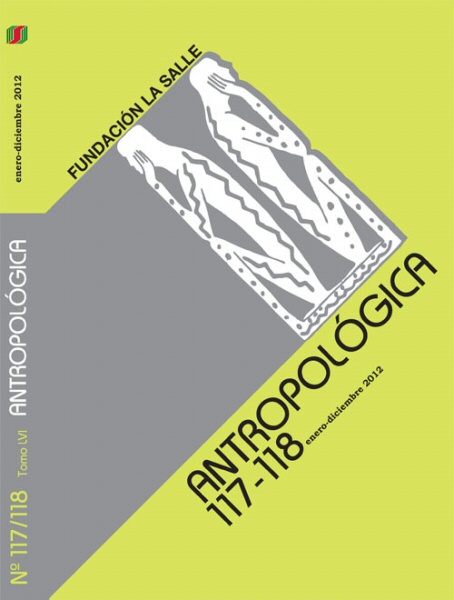Problemas de la poética Yanomami: ver, leer y escuchar las voces de un mito desde la vida cotidiana
Palabras clave:
Mitos yanomami, Dell Hymes, etnopoética, Bajtín, dialogismo, Lévi- Strauss, Mitológicas, Yanomami myths, ethnopoetics, Bakhtin, dialogism, MythologiquesResumen
Resumen. En este artículo intento demostrar las estrechas relaciones que existen entre un mito yanomami del origen de la noche y la vida cotidiana cuando se presta atención a la lengua. Basándome en el texto original del mito transcrito en lengua yanomami, utilizo aspectos del enfoque etnopoético propuesto por Hymes para analizar las voces que aparecen en el mito desde un punto de vista dialógico, siguiendo los trabajos de Bajtín. Partiendo del análisis propuesto por Lizot sobre las relaciones de este mito y el diálogo ceremonial, wayamou, desarrollo una segunda interpretación en la que demuestro las relaciones del mito con el discurso de los mayores, patamou. El artículo pretende contribuir, por medio de un ejemplo etnográfico concreto, al debate abierto por los trabajos más recientes de Overing sobre la fundamental importancia que tienen los mitos para entender las prácticas de la vida diaria en las sociedades amazónicas. Finalmente, se muestra la fertilidad de un tipo de análisis que complementa el enfoque etnopoético de Hymes con el estudio comparativo de Lévi-Strauss, respondiendo así al renovado interés que siguen generando las Mitológicas en la etnología amazónica.
Problems of yanomami poetics: seeing, reading and listening to mythical voices from daily life.
Abstract. In this article I attempt to demonstrate the strong link existing between a yanomami myth of the origin of the night and the everyday life when one pays attention to language. Based on the original text of the myth transcribed in the yanomami language, I utilize aspects of Hymes’ ethnopoetic approach in order to analyze the voices included in the myth from a dialogical point of view, following Bajtin’s insights. Departing from the analysis proposed by Lizot of the relationships between this myth and the ceremonial dialogue, called wayamou, I develop a second interpretation which demonstrates the relationships between the myth and the elders’ discourse, patamou. Through a concrete ethnographic example, the article attempts to contribute to the debate initiated by Overing’s most recent works on the fundamental importance that myths have in understanding the daily practices in Amazonian societies. Finally, it shows the fertility of a type of myth analysis that combines Hymes’ ethnopoetic approach and Lévi-Strauss’ comparative study of myths, and thus engaging in the amazonian ethnology’s present-day renewed interest in the Mythologiques.

